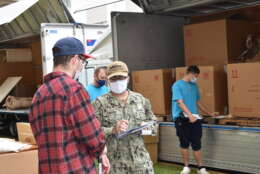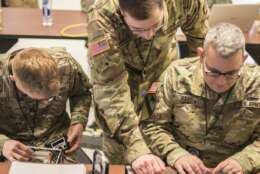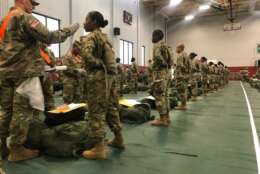Defense
-
The National Defense Authorization Act is the most visible thing on which Congress is making progress. But it's not the only thing.
June 30, 2020 -
U.S. Transportation Command has reaffirmed its original award decision in the $7.2 billion Global Household Goods contract after saying it would take corrective action.
June 29, 2020 -
In both chambers of Congress, next year's NDAA tells DoD it's time to devote more energy toward understanding not just the cost of buying weapons, but the long-term cost of owning them.
June 29, 2020 -
U.S. Cyber Command put its prototype training environment to the test.
June 26, 2020 -
The United States is in a worldwide competition for talent in artificial intelligence. So it makes sense to understand the career motivations of these workers.
June 26, 2020 -
The Army will take a few limited steps to counter racial divisiveness among its force
June 25, 2020 -
That 4,000 soldier deficit came in April and May when the Army saw a dip of about 2,000 new enlistments per month.
June 25, 2020 -
Mike Sydla, the division director for Information Management Resources Logistics, Maintenance and Industrial Operations at Naval Sea Systems Command headquarters, said keeping everything moving has meant embracing a new mindset but also keeping some workers in shipyards to continue fleet work.
June 25, 2020 -
The Senate's version of the 2021 NDAA would eliminate DoD's third-highest ranking position, one that's only existed for the last two years.
June 25, 2020 -
Weather experts are expecting a hurricane season with 30% more storms than usual.
June 24, 2020 -
The Veterans Affairs-Defense Department electronic health record project is more than a patient wiki.
June 24, 2020 -
A $5 billion overhaul of one of the Navy's aircraft carriers is going better than anyone expected thanks to the (relatively) young assistant program manager leading the project.
June 24, 2020 -
The private organization administering the Cybersecurity Certification Model Certification Program on DoD's behalf opened the application process for five types of participants in the CMMC "ecosystem."
June 24, 2020 -
Undersecretary of Defense for Research and Engineering Michael Griffin and Lisa Porter, who is the deputy, will step down July 10.
June 23, 2020 -
Since April, the Veterans Affairs and Defense Departments have been fielding what they call bi-directional health records sharing with outside healthcare providers.
June 23, 2020
















